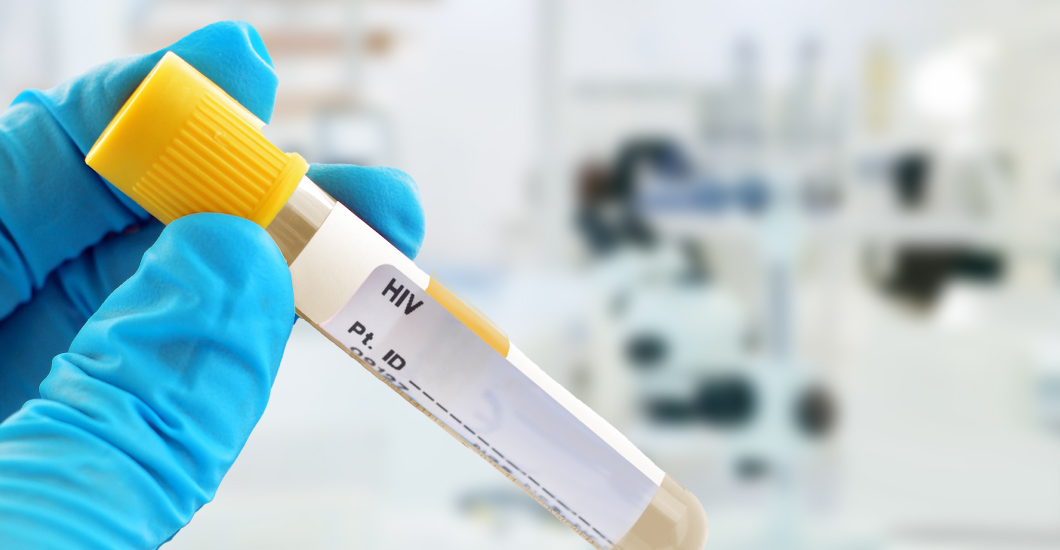Understanding HIV: Education, prevention, and treatment
Doctor's advice /
Learn about HIV transmission, prevention, testing, and treatment. Protect yourself and others with expert guidance from Sanitas Medical Center. Schedule today!

Summary: Human Immunodeficiency Virus (HIV) is a virus that affects the immune system, which helps the body fight infections. Without treatment, HIV can lead to Acquired Immunodeficiency Syndrome (AIDS). HIV is transmitted through specific bodily fluids such as blood, semen, vaginal fluids, rectal fluids, and breast milk. However, there are many ways to protect yourself from HIV, including safe sexual practices, avoiding shared needles and medications like PrEP and PEP. Although there is no cure for HIV, effective treatments allow people with HIV to live long and healthy lives. Getting tested regularly and knowing your HIV status is key to prevention and treatment. If you have questions or need an HIV test, schedule an appointment at Sanitas Medical Center today.
What is HIV?
Human Immunodeficiency Virus (HIV) is a virus that attacks the body’s immune system, specifically the cells that fight infections. Over time, if HIV is not treated, it can weaken the immune system, making it difficult for the body to fight off infections and diseases. This is why it is so important to learn about HIV, how it spreads, and how you can protect yourself.
HIV does not mean the same thing as AIDS. AIDS (Acquired Immunodeficiency Syndrome) is the most severe stage of an HIV infection. People who have untreated HIV are at risk of developing AIDS, which can lead to serious illnesses.
How is HIV transmitted?
HIV spreads when specific bodily fluids from a person with HIV enter the body of another person. These fluids include:
- Blood
- Semen ("cum")
- Pre-seminal fluid ("pre-cum")
- Vaginal fluids
- Rectal fluids
- Breastmilk
The most common ways HIV is transmitted include:
- During vaginal or anal Sex – When a person has sex without using a condom or other protection.
- Sharing needles – Sharing needles for injecting drugs, tattooing, or body piercing.
- From mother to baby – During pregnancy, childbirth, or breastfeeding.
- Accidental contact with blood – Such as being stuck with a needle that someone with HIV has used.
However, there are also ways you cannot get HIV. You cannot get HIV from:
- Shaking hands, hugging, or touching someone with HIV
- Using the same dishes, doorknobs, or toilet seats
- Being bitten by mosquitoes, ticks, or other insects
- Breathing the same air or drinking the same water
Knowing the facts about HIV transmission helps prevent unnecessary fear and stigma.
How is HIV diagnosed?
The only way to know if you have HIV is to get tested. Many people with HIV do not have symptoms for years, so testing is the only way to confirm your status. Knowing your HIV status is important for two reasons:
- If you test positive – You can start treatment immediately. HIV treatments allow you to live a long and healthy life and prevents you from passing the virus to others.
- If you test negative – You can take steps to protect yourself and stay HIV-free.
HIV tests are fast, simple, and painless. There are different types of HIV tests, such as blood tests, rapid tests, and self-tests you can do at home. If you think you may have been exposed to HIV, it is important to get tested as soon as possible. You can talk to a healthcare provider at Sanitas Medical Center about getting tested.
How can you reduce the risk of getting HIV?
There are many ways to lower your risk of getting HIV. Here are some important steps to protect yourself and others:
- Use condoms correctly: Use a condom every time you have sex, whether it is vaginal or anal sex. Condoms help prevent HIV and other sexually transmitted infections (STIs).
- Limit sexual partners: Reducing the number of sexual partners lowers your risk of coming into contact with HIV.
- Avoid sharing needles: Never share needles for drugs, tattoos, or piercings. Sharing needles can put you at high risk for HIV.
- Take PrEP: PrEP (Pre-Exposure Prophylaxis) is a medicine that people without HIV can take every day or as an injection to lower their risk of getting HIV. If you think you are at risk for HIV, talk to your healthcare provider about PrEP.
- Use PEP after possible exposure: PEP (Post-Exposure Prophylaxis) is a medicine that can prevent HIV if taken within 72 hours after a possible exposure. If you think you were exposed to HIV, seek medical help immediately.
Taking these precautions can protect you and your loved ones from HIV.
Is there a cure for HIV?
While there is no cure for HIV yet, there is good news. People with HIV can live long and healthy lives thanks to effective treatments. HIV medicines are called antiretroviral therapy (ART). These medicines work by stopping the virus from making more copies of itself.
When people take their HIV medicine every day, their viral load (the amount of HIV in their body) can become so low that it cannot be detected on a test. This is called having an undetectable viral load. When someone has an undetectable viral load:
- They stay healthy and can live a normal life.
- They cannot pass HIV to their sexual partners.
- The risk of passing HIV to a baby during pregnancy, birth, or breastfeeding is much lower.
If you have HIV, starting treatment as soon as possible is key to living a healthy life and preventing transmission to others.
Staying informed about HIV is one of the most important ways to protect yourself and others. At Sanitas Medical Center, we believe that education is the key to prevention and good health.
Take control of your health
HIV is a preventable and manageable condition. With the right steps, you can protect yourself and others. If you have questions about HIV, need a test, or want to learn more about prevention and treatment options like PrEP and PEP, Sanitas Medical Center is here to help. Our care team is ready to guide you every step of the way.
Call 1-844-665-4827 to schedule a visit at a Sanitas Medical Center near you to discuss your concerns and get personalized advice.


